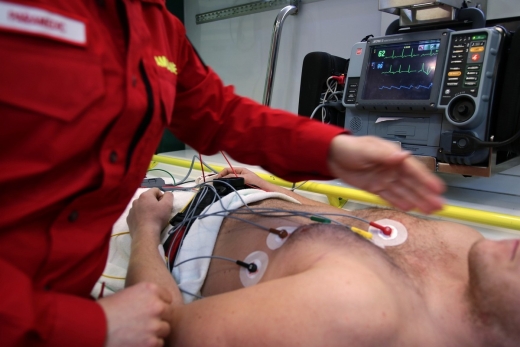5 ways to identify and overcome trauma triggers guide, Post-traumatic Stress Disorder PTSD pain
5 Ways to Identify and Overcome Trauma Triggers
16 November 2022
A trigger causes us to feel our own or someone else’s pain. It can come from environmental, situational, or personal factors. For example, feelings of loneliness, anxiety, tension, anger, pain, and frustration can trigger you. Or, it may come on when experiencing smells, arguments, relationship breakups, or news.
Triggers can make us feel bad. You may have Post-traumatic Stress Disorder (PTSD). Understanding how your current environment influences reactions to people and situations is essential. This understanding can help you identify the source of your responses. From there, you can take steps to overcome your various triggers.
Identifying Trauma Triggers
Some triggers are highly apparent and simple to spot. For instance, you may see a news story about a trauma like the one you experienced. The story may set off PTSD symptoms.
Other cues, however, are more subtly emphasized reminders. Unfortunately, you may not be aware of this until after a negative response. Consider when your trauma symptoms typically manifest. Observing your behaviors can help you discover your triggers.
Think about the following to decipher specific triggers:
- What were you doing
- Where you were
- Which people were you around at the time
- Any other relevant details
Then think about what happened immediately before feeling a certain way. You might be surprised to discover that your adverse reactions to people and situations remind you of trauma.
Overcoming Trauma Triggers
Identifying your triggers is an important first step. However, it does not automatically eliminate the symptoms triggered by them. Therefore, you must take additional steps to recondition yourself.
Here are five ways to help you overcome your triggers.
1. Change Your Environment
Changing the environment you associate with trauma should be the first step. Don’t stick to one location or give yourself the same triggers repeatedly. Doing so will only reinforce the link between trauma and a trigger. Instead, actively look for new places, people, and opportunities. Then, you will associate the environment with emotions that don’t relate to trauma.
2. Make Positive Associations
Find positive things to associate with each trigger you have. It will distract you from bad memories every time it occurs.
You can also observe details about the trigger and write down details. Then, try talking about what makes you feel good or happy. Then, allow yourself to feel good again. Then you’ll start associating good feelings with the trigger.
3. Apply Self-Help Strategies
Self-help strategies can help you deal with triggers from your past. Certain methods may help you overcome symptoms those triggers cause.
Try breathing exercises, keeping a journal, or practicing relaxed self-talk. These techniques help you recognize negative emotions and how to control them.
When experiencing a circumstance that triggers a stress reaction, do some deep breathing. Expressive writing can also aid in processing memories, feelings, and thoughts. Techniques like these should lessen psychological distress.
Use grounding strategies to keep your attention in the here and now rather than on your triggers. Stay mindful daily. Being mindful increases your self-awareness and ability to stay in the present moment. In time, you’ll focus on the now rather than dwell on the past or future.
4. Try Psychotherapy
A full-spectrum approach can help you overcome your trauma triggers. Working with a professional therapist or counselor may be the first step in overcoming your triggers.
Therapy can teach you many things:
- Learn about trauma triggers and their role
- Help you identify ways to change or evade stressful situations
- Develop coping skills to get through various situations
5. Consider Medication and Natural Treatments
In some cases, medications can help you overcome trauma triggers. However, it is never a good idea to “overcome” the symptoms of a mental disorder. First, you must address the underlying issues and root causes.
However, sometimes taking medication for a short period can get you back on your feet. It can give you the confidence to sort out what’s triggering your reactions.
As a side note, some mental disorders are better treated with medication. Clinical depression and bipolar disorder are a few that may require medication. There’s no shame in getting help and taking medication. Get in touch with a mental health professional to determine what’s best for you.
Cannabis for PTSD is another option to consider in your search for relief. You may struggle with PTSD. If so, research shows that cannabis is associated with reduced PTSD symptoms. Veriheal outlines some cannabis strains that are effective in the treatment of PTSD.
Conclusion
Learning to conquer your triggers may take time, but don’t give up. By applying the above strategies, you can overcome your trauma triggers. Everyone responds differently to different forms of treatment. So, keep this in mind as you focus on living a fulfilling life.
Comments on this guide to 5 ways to identify and overcome trauma triggers article are welcome
Buildings
Key Buildings in Scotland Articles – architectural selection below:
Merchant City boutique hotel

image courtesy of architects practice
Merchant City
Historic Glasgow : best Glasgow architecture of the past
Comments / photos for the 5 ways to identify and overcome trauma triggers advice – PTSD relief tips page welcome


